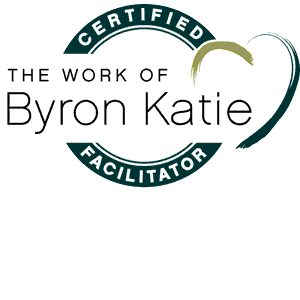Of Mothers, Daughters, and a Preeti Lama
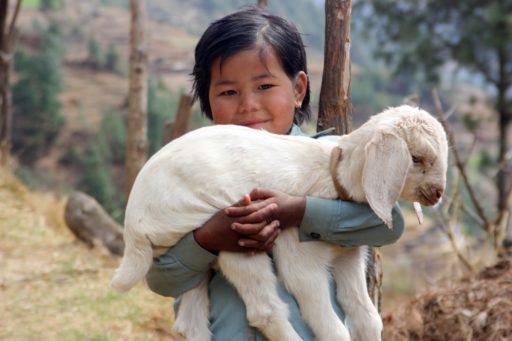
I used to think that my legacy as a daughter centered on shoes and clothes. But, in all fairness, there is more to the story. Years ago, after my father’s death, my mother started sponsoring little girls in developing countries. Mother never knew that she was a feminist, but it sort of oozed out through the seams of her Midwest life. Letters from Mexico, from India, from points unknown to her festooned her bulletin board and fridge, along with colorful photos of weddings and celebrations. She doted on her girls.
When she had a stroke a year and a half ago, I knew I wanted to continue another of her traditions. I began to research programs for girls in developing countries. That’s when I came across a troubling TED talk about the tragic consequences of the pressure we put on young girls when we expect them to save the world: see it here. Amy Benson, the speaker, is also a film maker who filmed a promising young female scholar for a year, only to discover that the girl had swallowed rat poison when she couldn’t find a way, as an educated young woman, to fit into her village in Nepal. Some of us pin our hopes on young women from developing countries, but that’s a whole lot of pressure in itself. The kind of support needed to truly prepare these young women to be leaders involves more than an education, I learned. I continued with my research. I later discovered that Amy, the film-maker, did her research, too. She went back to Nepal and sponsored the girl’s two sisters in a program that wraps its arms around the whole child.
So we both landed on Mitrata-Nepal, a small but thorough program founded by a therapist from St. Louis, one child at a time. It provides complete services for their children to enable them to make a leap into leadership once they get their education. Here’s the latest video from Amy. A happy ending. I’ve been donating 10% of every session for the past year to support the foundation. And I’m also sponsoring Preeti Lama, a fourteen-year-old from rural Nepal who is studying in Kathmandu. I’ll be meeting her myself in just a week when I visit her in Nepal. So soon my fridge will be full of exotic photos, too. 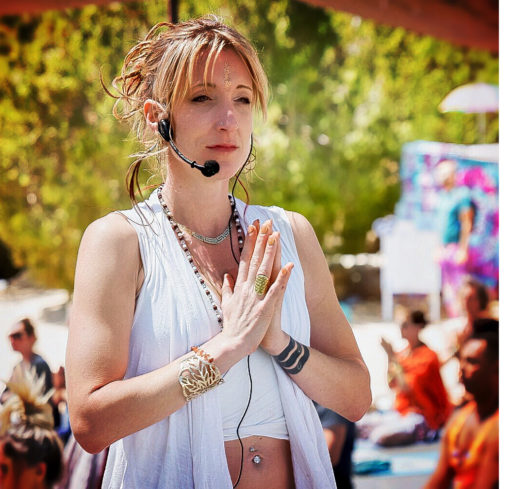
But this is a story about my own matriarchal lineage, and about finding ways that women can support other women to raise their children up out of poverty. This is where my daughter Johanna comes into the picture. These last months she has been traveling to spread the word about Shakti United, founded this year in the spirit of feminine power and sisterhood. She’s launched a Facebook group, a festival, and several other events with other women, in the spirit of sisterhood. The goal is to celebrate the female voice, literally, with yoga, mantras, chants, and songs. And all of this beauty also helps to support the education for girls in Nepal.
And so…in less than a week, I’ll be in Kathmandu connecting the dots in my lineage as I meet Preeti Lama. And each of you who I have coached will be there with me there too, in the spirit of strong, committed, caring women.
A Landing Place for the Soul
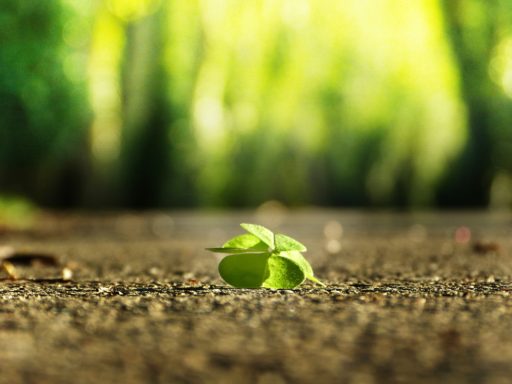
It’s not too late. Even within the rushing movement of summer, here we are mid-August. Which is still summer. Gosh darn it!
This is what I keep reminding myself as I watch the “doing” pace increase: It’s still summer. The best month for tree-staring. The rest of the season seems to have whirred by like scenes from the bullet train in Japan. Blurred but going somewhere.
But . . . it is still August. Quiet is possible, I remember, even for a few minutes a day. That’s when I find the deeper, quieter parts of myself that I sometimes call my soul. Soul-Retrieval is a “thing” I guess, but I see it as a DIY job. With that in mind, a late summer invocation for your soul.
Remedy for Lost Souls
What if you couldn’t lose your soul?
What if your soul just sometimes lost you?
What if it just couldn’t compete
With the list of what must be done,
Couldn’t be heard
Over the lightspeed whizzing of freeways,
The invisible waves of information,
of entertainment and stimulation
Couldn’t find you, caught as you were
In the death squeeze of entrainment.
What if it’s looking for you right now,
Your soul that is. How would it catch your attention?
Could be a TV commercial or Google Ad would work.
It would have to catch you in the right place, at the right time.
How about making it easier on your poor soul?
Just. Stop.
Spend a day, an afternoon, an hour under a tree. Any tree.
Take nothing but a blanket.
Gaze at the limbs, the teasing blue in the space between branches.
Move in or out of the shade, as needed.
Sigh once. Sigh twice.
Stare at a leaf.
Watch for chipmunks stuffing their cheeks.
Like a bird watcher, quietly wait for a sign.
Silvering light on an aspen leaf will do,
Purple clover or hairy yellow bumble bee.
A patchwork of green and light on the ground around you.
Open my Eyes

Open my eyes that I may see / Glimpses of truth thou hast for me.
Place in my hands the wonderful key / that will unclasp and set me free.
Open my eyes. Illumine me. Spirit Divine!
These words, along with the very old tune, haunt me once again, refusing to let go until I listen. It’s a familiar evocation that has become a sound track of my life’s changes. There’s the quiet comfort of a childhood hymn, embedded even before thought or awareness. I sit in humbled silence, grateful that, on this somewhat rare occasion, most of the words and messages of my Southern Baptist past aren’t requiring a lot of translation to speak to my soul as it is now.
It’s a birthday and a passage for me as I begin my (yikes!) eighth decade of life. I’m spending a couple of days in solitude, on a seaside personal retreat. And then there’s the tune, paired with a certain deep plea of the heart. I feel humbled by the resonance of it. And then so many memories kick in, cataloguing the incidents of the past when the song came to me as a prayer at different stages and ages of life.. I’m momentarily grateful that I still have a memory for this reason alone. And when I don’t, I’m grateful for my sidekick Google, who’s always waiting nearby for a new case to solve. I’m amazed to discover the hymn, over 130 years old, was written by Clara H. Scott, the first woman to publish a hymnal.
My mother would be so proud, I think. She died last year, but for years she was way ahead of me when it came to feminism and hymns (or religion, for that matter). When she got involved in the “inclusive lyrics” movement for church songs, I had left all of it far behind, all of the crap from my childhood religion. Or so I thought. Years later, sitting by the ocean with the refrain wafting through the sounds of the waves, without my mother’s living presence in my life, I’m not so sure.
There’s a glimpse of the truth of the first stanza. I think about how meditation and inquiry have unclasped and set me free during the last decade. I think of all the ways I have come to understand at the deepest levels the true inner workings of the stories and scriptures and prayers of my childhood. As I sit in contemplative silence on this momentous birthday, I notice the unique (and yet universal) presence of Spirit, at all ages and stages. Always there, when I notice it.
And then the very last stanza pops into my mind. I realize I don’t even need to know what to call it or where it comes from, that voice of truth, but I celebrate it by singing aloud a song from my soul to the sea in front of me:
Silently now I wait for thee,
ready my God, thy will to see.
Open my eyes…ears… heart,
illumine me, Spirit divine!
An invocation. An intention. A celebration.
A prayer for a decade.
Respect Existence. Expect Resistance.
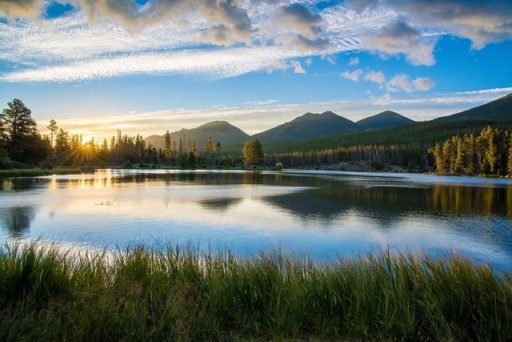
My eyes seem to be trained to focus on text in all forms. So I can’t seem to keep myself from reading any big print I come across, like bumper stickers. I realize this might not be true for everyone, but some of us can’t help ourselves. One of my friends referred to the habit of reading whatever comes into view as “life according to text.” A whole lot of text pollution comes through my brain without my noticing, even when I shut off my phone with the express intention of slowing down my brain.
A couple of weeks ago I flew to a silent retreat in the high Sierra mountains to clear some clutter out of my brain. On the road and in the airport, my eyes just kept on reading, as they do, collecting aphorisms and occasional cleverness along the way. I arrived at the destination still in compulsive reading mode. Retreat Center. Check. Pristine mountain lake. Check. Bumper sticker. Must read. Respect Existence. Expect Resistance. Double take. Whoa! Deep, I thought for a second.
Then my brain skidded to a sudden stop. These four words seemed to just sum it all up. Life. The Universe. Everything. Inside out. Outside in. The word “Resistance” has come to mean something very specific of late. From the outside, it would seem that respecting existence (healthy planet, bodies, animals, lakes, oceans…on and on) does in fact bring up resistance from those who see their interests threatened. But this is the kind of over-thinking I was trying to forget for the week, away from the daily bombardment of polemics.
The focus on this week was internal. So I brought myself back, asking myself a question: where do I experience resistance when I respect my own existence?
Only almost always, came the answer. And I’ve noticed it’s not just me. For just about everyone I know, respecting “existence,” the life we’re calling our own, involves making one change or another. Cutting down on carbs. Going vegan. Taking up hiking, yoga, writing, or anything that calls us. And especially the Big One: becoming more mindful in how we live our lives. Any little thing can bring up some other opposing force. Something we casually refer to as “resistance.”
The odd thing is that the closer the change is to our essential self or our life calling, the greater the resistance. This is the good news and the bad news. I’ve been examining this for a while now, but during this retreat I sat with the puzzle of it. Day in and Day out. Living in inquiry, I watched myself move in and out of the life force. Feeling the flow, joining it. Noticing the ways my critical mind or old habits show up. Then, understanding that resistance isn’t futile, I returned to the flow of existence once again. Which is where I find myself today, in my “regular life.” Expecting (and understanding and respecting) the way of it. All of it.
In the meantime, when I get lost in the trance-like feeling of resistance, my favorite William Stafford poem brings me right back to the sweet summer, to this time of life, to what is truly important. To existence.
Why I Am Happy
Now has come an easy time. I let it roll.
There is a lake somewhere so blue and far nobody owns it. A wind comes by and a willow listens gracefully. I hear all this, every summer.
I laugh and cry for every turn of the world,
its terribly cold, innocent spin.
That lake stays blue and free; it goes on and on.
And I know where it is.
– William Stafford

